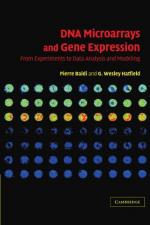|
This section contains 2,250 words (approx. 8 pages at 300 words per page) |

|
The chromosomes of an organism contain genes that encode all of the RNA and protein molecules required to construct that organism. Gene expression is the process through which information in a gene is used to produce the final gene product: an RNA molecule or a protein.
Each cell in a multicellular organism such as a human contains the same genes as every other cell. Nonetheless, there are hundreds of distinct types of cells in the human body, each expressing a unique set of genes. Indeed, it is this unique constellation of expressed genes that makes each cell type distinct.
Cells may also change the genes they express over time, and they are constantly adjusting the amount of protein made in response to changing conditions. How does a cell express some, but not all, of the genes in its genome? How...
|
This section contains 2,250 words (approx. 8 pages at 300 words per page) |

|


